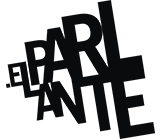Fear: Ana Cecilia Cervantes Sampayo
Back in the world of teaching, after a few years working outside the classroom, I began to prepare my first workshops for high school students as always, with the necessary proximity so that all teenagers understand the meaning of our presence in the classroom, and with enough distance to earn my respect. But, before going to the first session, the director of elParlante, the association for which I work called me to give me a simple advice: “Remember that the important thing in this first approach is that you are yourself”. At that time I did not understand that suggestion, but I admit that this idea dismantled part of what I had prepared with the help of the pedagogical guide of the project.
Between the nerves of arriving late, and how far away the Institute of my house was, I did not rise to think about how I was going to do it, how to be myself in front of a group of teenagers? How do I find this connection after so many years? I had to get there and conquer everyone with the history of my origins, show them the images of what they create is Colombia and demystify some of the stereotypes most rooted in this country. This is how they start the workshops of La Cruïlla Comuna (The Common Cross ) with an encounter between cultures, sharing everything that unites us and what differentiates us
However, even knowing all the theory that underpins the workshops, I did not let him start at that first moment. With my nerves still running high, I entered the class, I felt like the newbie of the Institute and not as the teacher I had been, because it was not only about explaining a topic, but about doing it myself. So, while the teacher introduced me, I decided quickly and without thinking too much that the best way to approach the audience was to speak Catalan. The experiment was not very good for us to say, not because I can’t speak it well, but because I started to make an (improvised) translation of my own life and some media information circulating about Colombia and Barranquilla.
At some point during the session, a boy raised his hand and asked me to speak in Spanish. “Well, there is no problem,” he said, “we promote education for freedom and not because now the session ends in Spanish we should all speak in the same language, the idea is that everyone expresses themselves in the way that feels most comfortable.” He listened to me giving me a council that I had not followed, yet I was tormented by the idea of thinking that my Catalan was one of grief, and that I could never make a complete session in the language of the place where I had left my roots.
Catalan, from then on, was not the problem. Being myself that first day of classes, in the sense that that that phrase would suggest to me, did not seem like a simple task. Because it was not simply a question of going there to teach the photos and videos that follow our reality, but of telling it in the first person. I should introduce myself there as Woman, a little African, a little Galician, a little indigenous, Colombian, from the third world, or from a developing country, as a teacher, as a guide, or simply as a person who throughout four sessions tries to leave more doubts than certainties, especially in everything that apparently separates us. My story must represent the difference, the point of view of the other, of that other person drawn and barely seen in the audiovisual and social media, because encounters like these safeguard our diversity.
Highlighting difference is not about promoting and perpetuating an idea of inequality or opening more gaps, but on the contrary, it seeks to find ourselves in what makes us unique and unrepeatable, not only as people, but also as cultures. We are not “you” and “ours”, because throughout the classes we become “everyone”. And we share stories, many, many have even confessed to me having involved in their vocabulary some of my words, some of those that we invent in the Caribbean, such as chévere or bacano, and that I still keep in the backpack I carry when I come to Barcelona.
Now that I have finally begun to understand my part in the pedagogy of this project, in each new beginning of The Common CrossroadsWhen I go to a new school, in a new town, I wonder if I will be able to exercise the power of being myself and facing students an education from difference. We have before us a great transformative and critical challenge, fighting rumors, dismantling stereotypes, opening the eyes and ears of new generations, the only ones capable of provoking that change we long for.
Promote the diversity As a common good, to promote a critical view of the media and promote the gender equality, is the only thing we are looking for who do this, to find ourselves in the debate and the inclusive discussion, with the excuse of watching a video, knowing stories of Barranquilla from Morocco or talk about Reggeaton. Flor is Argentinean, and students are fascinated by her way of conjugating verbos only in feminine, Raquel is Galician and is able to construct a sentence with words from three different languages while recording a video session, Natàlia is Catalan and also talks about the prejudices that exist on our territory, and thus, Each one, each one, is putting together their discourse, generating unrepeatable narratives. This is who we are, this is what I am, I work without fear of being myself.
Article originally published in
Mujeres en Travesía
